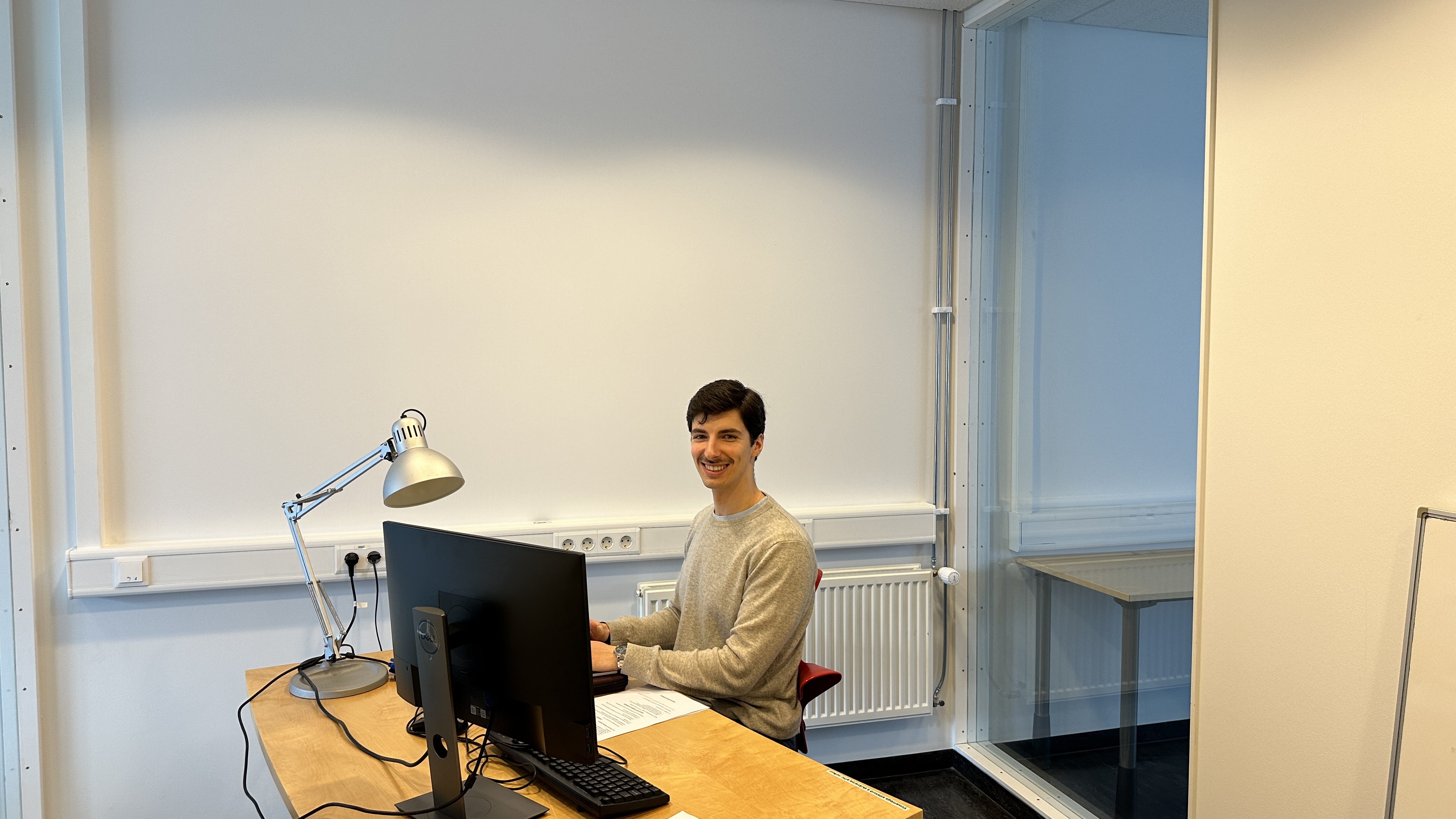Researching green ammonia for maritime use in Ísafjörður
UW has a visitor this week from a researcher conducting field work in Ísafjörður for his master’s thesis. Matei Filip Popescu is a 26-year-old master’s student in the Environment and Natural Resources program at the University of Iceland. He has been staying at UW, where he uses the remote working office to conduct interviews with locals. His thesis adviser is Dr. David Cook, who is an instructor at UW and adjunct lecturer at the University of Iceland. It is through his connection to UW that Matei came here to us. His master’s thesis is on the social acceptance of green ammonia for maritime uses in Ísafjörður. He is conducting interviews with local institutions, businesses, and members of the community to understand and consider a broad spectrum of opinions, worries, or excitements about the idea of developing a green ammonia hub in Ísafjörður for maritime use.
Matei explains that green ammonia is an ammonia molecule (NH3) produced using renewable electricity. This is because hydrogen is produced using electrolysis, a process that splits water into hydrogen and oxygen using electricity. Unlike traditional ammonia, which is produced using fossil fuels, green ammonia does not emit greenhouse gases during its production. Matei says that green ammonia has potential as a zero-carbon fuel for vessels. It is similar to current fuels like bunker oil in terms of storage and handling, making it easier to adopt. It can help decarbonise the fuel consumption of various marine industries. Matei’s interest in hydrogen developed long before joining the master’s program.
“In the world’s rush towards net zero emissions, it is impossible to fully electrify all industries, and so alternative fuel sources are needed. I am a big proponent of understanding community voices when proposing any development project that would in some way impact them. And so, my thesis came together with help from my supervisors as we tried to narrow down a topic to focus on” says Matei. He further explains how his research will contribute to Ísafjörður by providing a deeper understanding of what the local social barriers are towards a hypothetical green ammonia hub and it aims to provide insight into how these challenges can be addressed.

During Matei’s stay here at UW, he learned more about our master’s programs and courses, and found similarities between them and the master’s program at the University of Iceland. Given the chance, Matei said he would love to sit in on the Coastal Food Systems course. He also received tips about the community and assistance in contacting participants from UW staff, especially from the two program directors, Dr. Brack Hale and Dr. Matthias Kokorsch. We hope to see Matei again in Ísafjörður and at UW, maybe as a guest student next time. His stay at UW has been informative for both Matei and UW staff and showcases the importance of collaborations between UW and young researchers from other institutions like, University of Iceland.
